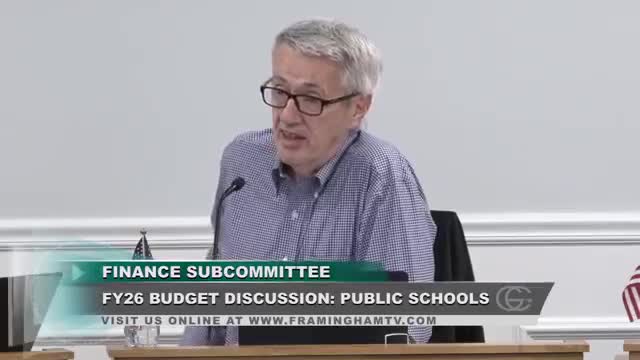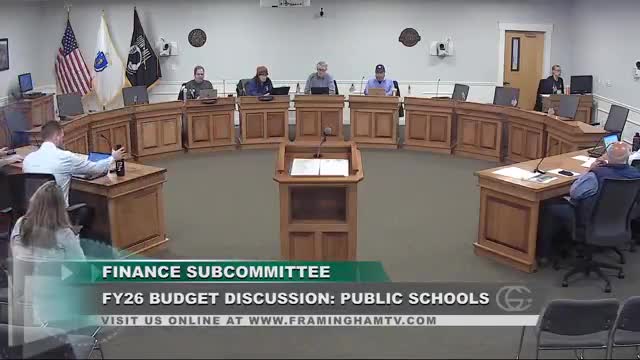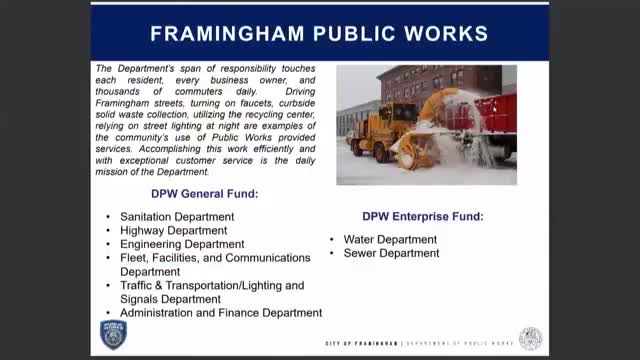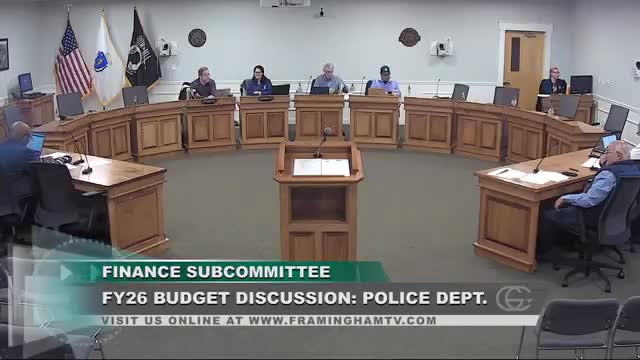Article not found
This article is no longer available. But don't worry—we've gathered other articles that discuss the same topic.

Framingham Parks & Recreation seeks level operating funding; requests small capital for arena scoreboard and landscaping trailers

Framingham schools present $184.5 million FY26 request; $1.4 million gap with mayor’s proposal

DPW presents FY26 sanitation, highway, fleet and water/sewer budgets; MWRA assessment drives enterprise increase

Framingham Fire Department presents FY26 operating budget; highlights gear replacement and PFAS‑free gear purchase

